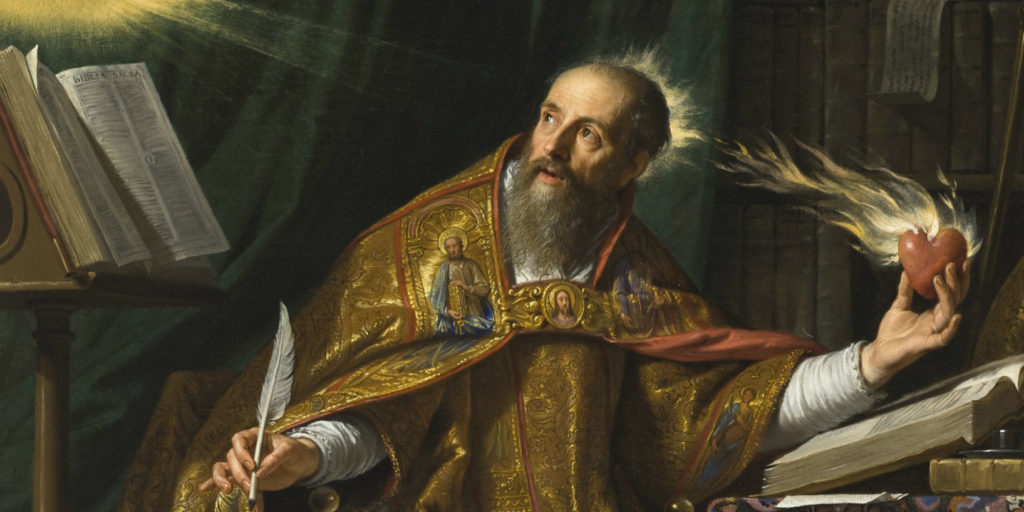
The Human Experience of Divine Illumination
There are few more treacherous areas in theology than the subjectivity of the human experience of God. George Lindbeck’s work, The Nature of Doctrine dealt the notion of experience a heavy blow. His argument against ‘experiential expressivism’ and the relativity of developing doctrine on the basis of subjective experience, made it difficult to defend the value of experience. How could any knowledge of God be objective if even a spec of it was tainted by the subjectivity of individual experience?
And yet, human existence consists of the ongoing string of experiences that make up one’s life. Karl Barth wrote in a subsection of the Church Dogmatics entitled “The Word of God and experience” that “[humanity] does not exist abstractly but concretely, i.e., in experiences, in determinations of his existence by objects, by things outside of him and distinct from him” (CD I/1:198) If we are to understand God as one who is outside of us and distinct from us, and yet one with whom we have encountered in the word of God written and revealed, how else are we to speak of this except as experience?
The issue for ‘experiential expressivism’ was not experience itself but that experience became the basis for theological construction. The solution is not to dismiss and disregard experience (as if we could). Rather, the solution is to turn the equation around and have our theology form and inform our experience. In this way, we make theologically informed decisions about such practices of the church as congregational worship, a common space in which we encounter—i.e., experience—God.
So then, what is the human experience of trinitarian illumination?
First, we stand in agreement with the reformers, that illumination is still illumination of the Word of God. Where we might make our distinction is to say that it is first the illumination of the Word of God revealed, the second person of the trinity, the word made flesh. Then, and derivatively, it is the illumination of the Word of God written-the Bible. The distinction is important because it reminds us that illumination was already a Christological conversation, just not explicitly so.
What we see in the Gospel of John are experiences, encounters with the Word of God that constituted and determined the individuals’ existences from that point on. This means that in order to interpret these passages well, we must engage with the question of the human experience of God from a theological perspective.
Determination and Acknowledgment
To this end, there are two terms I use to capture the human experience of illumination: determination and acknowledgement. I draw these from Karl Barth and here is how I use them.
Determination refers to the way in which an experience of God determines the shape and direction of our lives. The man born blind of John 9 is set on a new course due to his encounter with Jesus. Though he had no control over the experience, nor was he able to manipulate the outcome, the experience has determined his life in a new way.
His life is no longer defined by his blindness, but is opened to new possibilities because of his sight. Presumably, he has also become a follower of Jesus (John 9:38), a move that puts him at odds with his own parents and the Jewish social world as a whole (John 9:22-23). Though he had no control over this encounter with the light of the World, the transformation is undeniable and irreversible. His life has been re-determined by the illumination of the Word of God in Jesus Christ.
Acknowledgement speaks to our human response in the experience of the Word of God in illumination. In Seeing by the Light I outline nine theses that argue for the fittingness of this term to capture what happens in the human experience of illumination, but here I will focus narrowly on the nature of acknowledgment as a responsive and relational term.
Acknowledgment pertains naturally to illumination because it contains within it the concept of knowledge. Because God’s word is first and foremost speech and therefore communication between persons of intellectual and rational faculties, there is an undeniable intellectual component to the experience. However, to acknowledge means I have received this information, not that I have contributed to it in someway myself.
Furthermore, “to acknowledge” implies a relational component. It is the affirmation of a fact by one person to another and accepts as true what has been shared between two people. In the event of illumination, this acknowledgment happens in the relation of human as person to the person of God.
In this relational response, acknowledgement also captures the sense of control that the Spirit continues to exercise as God communicates himself through his Word to us. The human creature does not determine what knowledge is conveyed or the kind of relationship that is established in the experience. Rather, he or she only accepts this Word and its truth as they are convicted by the Holy Spirit. In confrontation with the Word of God, the Spirit convicts us not only of its truth, but moves us into a place of submission to its authority. Click To Tweet
Finally, in this relational response, acknowledgement means recognition of authority. In confrontation with the Word of God, the Spirit convicts us not only of its truth, but moves us into a place of submission to its authority. Consequently, not only does the Spirit conform our intellect to the Word’s truth, but the Spirit also conforms our lives to the nature and character of Christ. In this way, acknowledgment and determination intersect and overlap.
This acknowledgement is illustrated well by the experience of the Woman at the well in John 4. Jesus communicates his knowledge to her and she recognizes and receives it as true. She does not determine what is revealed, but accepts it as truth. This places her under Jesus’ authority in her recognition of him as a prophet, and ultimately as the savior of the World. She is convicted and convinced of its truth, but it then also compels her to carry the message to her community. Not only is her mind transformed, but so is her life.
The event of illumination is the experience of finding oneself determined by this encounter with the Word of God in power of the Holy Spirit and in acknowledgement of its truth and lordship over our lives. Therefore, as Thomas Noble has written, a more holistic vision understands Christian experience as the “rational, experiential, converting, sanctifying, and life-changing knowledge of God in and through the incarnate Word by the Spirit.”[1]
Conclusion
To draw this to a conclusion, there are few better encapsulations of this position than Eduard Böhl’s analogy of the rainbow:
It is only an appearance that the rainbow stands on the earth, in reality it arches over the earth; true, it stoops down to the earth, yet it does not stand on our earth, but is only perceived from it. So it is with divine truth; this needs no human support, as the rainbow does not need the earth. True, it shines on man and he receives it; yet it is not dependent on man. It withdraws and man remains in darkness; it returns and man walks in light. But man is not its assistant; he cannot produce the light; similarly he cannot store it.[2]
The experience of illumination is a miracle that encounters humanity, which humanity participates in but only as the recipient and the “acted upon.” The miracle affirms that the true knowledge of God is possible but only as it is realized by God’s coming to humanity in grace. We are not given the psychological location of experience and the search for it is much like the search for the foot of the rainbow. It is done in vain. Illumination does not have its ground in humanity but in the interplay of the Word and Spirit. In this way, Illumination shines on humanity and humanity receives it. We receive it in grace, and it transforms our lives.
*See Dr. Miller’s first piece on his book, Seeing by the Light.
Footnotes
[1] Thomas A. Noble, “Scripture and Experience,” in A Pathway into the Holy Scripture, ed. P. E. Satterthwaite and D. F. Wright (Grand Rapids: Eerdmans, 1994), 294–95.
[2] Eduard Böhl, Dogmatik: Darstellung Der Christlichen Glaubenslehre Auf Reformirt-Kirchlicher Grundlage (Amsterdam: Von Scheffer, 1887), 25.

